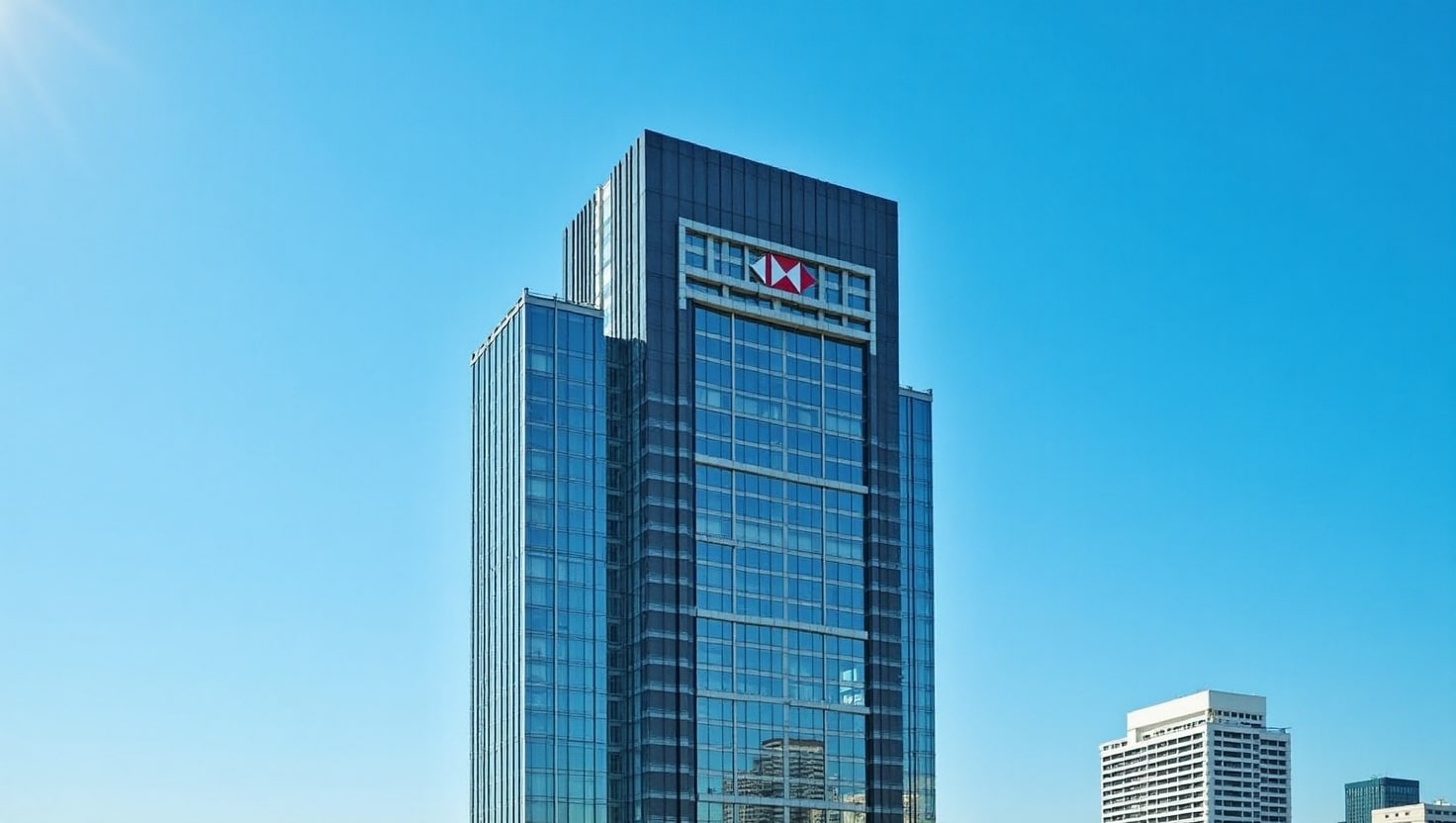
HSBC Job Cuts and Restructuring Under Georges Elhedery
In the dynamic environment of the world of international finance, HSBC Holdings Plc, a major banking enterprise worldwide, is undergoing a significant transformation under the leadership of its new Chief Executive Officer, Georges Elhedery. Elhedery, who joined the position in September 2024, has led a massive restructuring programme to make the bank leaner and encourage operations, reduce expenses, and focus on the long-term evolution of the bank. Nevertheless, this grand reform has been tainted with an unhappy human toll, as layoffs in different areas and departments have triggered debate over the long-term impact and result of the bank on its employees and shareholders.
A New Vision of HSBC
The hiring of Georges Elhedery as the CEO of HSBC was another special instance in the history of the bank, as it has been a global banking giant that has a widespread network in the Asian continent, Europe, and the Americas. Elhedery, an experienced banker with lots of experience in the Middle East and Asia, has come up with a vision to streamline the complicated structure of HSBC, streamline it as well as target high-growth markets. His plan involves the redistribution of resources that are not performing well to regions where HSBC would have a competitive advantage, especially in Asia and the Middle East. This transformation is a wider recognition that the old global presence of the bank is no longer viable in the unstable financial environment.
The restructuring strategy, the formal implementation of which is planned to start in January 2025, will bring massive cost savings to the company: it is predicted that it will be between $1.5 billion and 3 billion in a few years. To realize this, Elhedery has embarked on a barrage of structural reorganisation, which involves restructuring the bank by combining the commercial and investment banks under a single entity and setting separate businesses in the UK and Hong Kong, respectively. The actions are designed to eradicate layers of bureaucracy, make decisions more efficient, and increase services to customers. The financial impact is, however, huge, and the bank estimates to incur charges of $1.8 billion in the next two years, which may mainly be on severance costs.
The Layoffs Spreading Worldwide
The main element of the restructuring implemented by Elhedery is shrinking the number of HSBC employees worldwide, which was more than 211,000 full-time employees at the end of 2024. The bank has already made huge layoffs, especially in the investment banking unit, which has been reduced across the board both in Europe and, UK, and in the Americas. In May 2025, HSBC cut more than 20 analyst jobs, and among those jobs were high-profile jobs like the global head of fixed income research based in Dubai. The reduction is one side of a strategy to reduce less lucrative operations, including mergers and acquisitions, and equity capital markets in Western markets and redouble on its debt financing and transaction backing across the globe.
In France, HSBC would reduce its workforce by 348 employees on voluntary redundancy grounds, which would mean a tenth of its staff in the country. Equally, Hang Seng Bank, based in Hong Kong, which is 63 percent owned by HSBC, announced it would cut around 1 percent of its core members of staff in its restructuring exercise. There have also been further lay-offs in foreign exchange (FX) departments and other investment bank jobs, some of which have seen those being made redundant rapidly find new jobs elsewhere within the industry.
Such retrenchments have not come without controversy. As part of the workforce concerns, employees working in affected areas, especially in corporate and institutional banking, have been warned of smaller bonuses in 2025. Although it is seen that some employees are being given retention bonuses to facilitate the winding up of some operations, the insecurity of jobs has brought confusion among the workers across the world of HSBC.
Retaining the Cost-Cutting with Challenges on Office Space
Complicated into the cost-cutting agenda of Elhedery should be the fact that HSBC wants employees to leave remote working and come to the office at least three times a week. This change is a bit of a turnaround of the bank post post-pandemic strategy, which involved a 40-percent cut in the number of offices it maintained around the globe, with the help of the old CEO, Noel Quinn.
The back-to-office policy is likely to add to the expenses of real estate by an additional $200 million a year as HSBC finds itself with a crunch of desk spaces at major business hubs and cities such as London, Bangalore, Hyderabad, and Guangzhou. To cope with this, the bank is considering a possible move to lease more office space around its new headquarters in the City, and even a second thought on whether it wants to be in Canary Wharf or not.
This decision has made people argue whether the cost-saving measures coincide with the objectives of the return-to-office policy as elaborated by Elhedery. The higher costs in real estate can kill the projected savings of 1.5 billion a year, and this will pose a big challenge to the new CEO. Decisions on office space have to be made soon, and the deadlines are approaching in India by September 2025 and in China by mid-2025.
Asia and the Middle East Strategic Focus
The restructuring being done by Elhedery is not just on a note of cost-cutting but also on a note of strategic reinvestment in high-growth areas. HSBC is making one of its biggest bets on its investment banking business in Asia and the Middle East, the areas where it believes there is much opportunity, such as wealth management, trade finance, and digital banking. This 160-year history in Hong Kong makes the bank a leader of the cross-border wealth hub of the region, and Elhedery has stressed that the bank has to make use of this asset. Moreover, HSBC seeks to expand its lines of income by venturing into the thriving private lending segment to drive revenue.
The reshaping has won backing from its major shareholders, such as Ping An Insurance, its largest shareholder, which in the past fell out with HSBC but which is now in support of Elhedery. During his leadership, the share price of the bank has recovered, and this is an indication that the market has confidence in the strategy. Nevertheless, to the detriment of business in the Western market, the focus on Asia and the Middle East is observed, questioning the future of HSBC in such markets as the US and Europe.
Navigating a Volatile Future
With HSBC negotiating an uncertain macroeconomic environment, with its possible implication on profits due to a decline in interest rates, the restructuring strategy by Elhedery is a daring decision to make the bank flexible and competitive. His strategy of job reduction, streamlining operations, and reinvesting strategically is an indication that he is working hard to ensure that HSBC is simple, agile, and responsive to change. However, the human and economic consequences of this change indicate that there is a thin line between efficiency and employee welfare.
To the employees of HSBC, the next few months will be the season of transition as the banking organization restructures. As much as there are new opportunities in the expanding regions that some of these employees can get, there is uncertainty facing some employees as the company reduces operations in some of its traditional markets. In the case of Elhedery, the problem is to implement his vision without losing the global reputation of the bank and losing the capacity to serve the wide range of its customers. Heading on to the future, the success of this restructuring will be determined by its capability to adjust to new economic realities in its quest to remain customer-focused as a bank.



 Bitcoin
Bitcoin  Ethereum
Ethereum  Tether
Tether  XRP
XRP  USDC
USDC  Solana
Solana  TRON
TRON  Lido Staked Ether
Lido Staked Ether  Cardano
Cardano  Avalanche
Avalanche  Toncoin
Toncoin